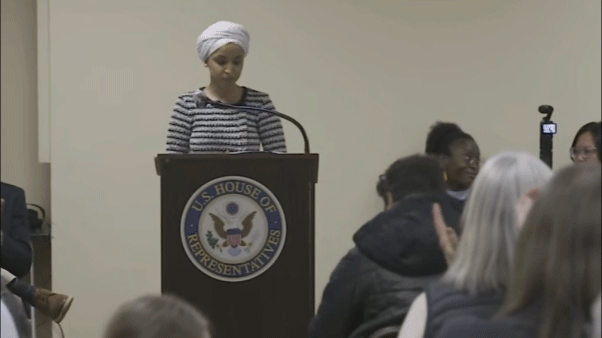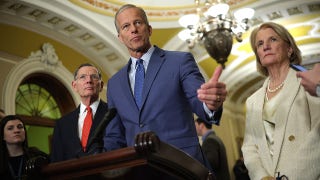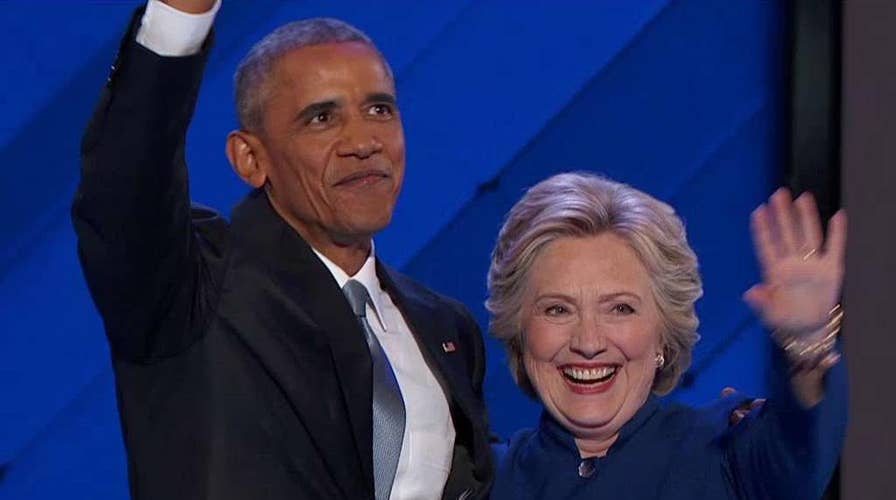Obama urges voters to reject cynicism, elect Hillary Clinton
President Obama is joined by Hillary Clinton on stage at the Democratic National Convention
It was in many ways a typical Barack Obama speech: overly long, somewhat self-justifying, building to a passionate crescendo.
But when the president finally got around to saying he would pass the baton to Hillary Clinton—and got a long hug from his would-be successor—he created a photo-op moment that rocked the Democrats here in Philadelphia. Whether he swayed voters wary of his former top diplomat is another question.
What Obama was determined to do was create an optimistic and uplifting vision of America to contrast with what he and his party see as the dark and dangerous outlook of Donald Trump. And he warned the country not to fall under the sway of “homegrown demagogues.”
It is personal between Obama and Trump, and don’t let anyone tell you otherwise. Ever since the billionaire went through his birther period, Obama has relished opportunities to punch back.
Naturally he wants to preserve his legacy by ushering in four more years of Democratic rule, but he will take a special pleasure in denying The Donald a chance to live in the house he now occupies.
After nearly eight years, Obama had to admit that he had made mistakes. That Hillary had made mistakes. That that is the price of working for change.
He certainly erased memories of what bitter rivals they were eight years ago.
Obama had to grapple with how long his would-be successor has been on the stage: “Look, Hillary’s got her share of critics. She’s been caricatured by the right and by some folks on the left; accused of everything you can imagine – and some things you can’t. But she knows that’s what happens when you’re under a microscope for 40 years.”
Obama spent too much time defending his record; he’s never running for office again. But rather than train too much firepower on Trump the man, as Joe Biden did earlier, he attacked Trumpism, saying America is better than that. But as a way to motivate disaffected Democrats, he also warned that Trump could win.
In the end, Obama made his appeal about the voters, not himself, and not even his ex-secretary of State.
“Time and again, you’ve picked me up,” he said. “I hope, sometimes, I picked you up, too. Tonight, I ask you to do for Hillary Clinton what you did for me.”
Obama’s popularity has ticked up during this campaign, perhaps because the two nominees have such high negatives, perhaps because the economy is improving. But it has never been easy for one politician to transfer his popularity to another.
Obama, who began by recalling his “no red states/no blue states” speech of 2004, has failed most fundamentally on that score. The country is more polarized and divided than when he took office, as he has ruefully acknowledged.
If enough voters buy the more optimistic picture being painted by Obama and Clinton, then she will break the ultimate glass ceiling. But if their words sound empty to enough Americans who are angry and frustrated with politics as usual, even Obama’s oratorical skills will be unable to stop Trump.












































